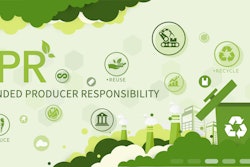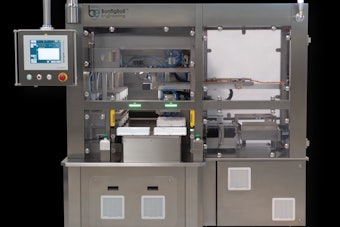When it comes to what institutional investors think about climate change and how it impacts the valuation of companies, there are two ways to view it. The first approach is to limit the risk associated with current business models. The growing rejection of the carbon economy could leave fossil fuel-intensive companies on life support – “stranded assets” in financial vernacular. Therefore, climate change risk transparency is increasingly becoming an expectation for investors. With the second approach, investors are also drawn to the compelling potential of new sustainable business models that might one day come to dominate their sectors.
The appeal of most institutional investors for climate-friendly portfolio companies is not altruistic. It is just a profitable business approach. Take Vanguard, the largest U.S. mutual fund by assets, regarding its response to sustainability-related shareholder proposals. “Our support for these proposals is not a matter of ideology, it’s a matter of economics,” Glenn Booraem, Vanguard’s investment stewardship officer, stated in an interview. “To the extent there are significant risks to a company’s long-term value proposition, we want to make sure there is long-term disclosure of those risks to the market.”
Institutional investors have considerable clout in shaping corporate direction, and a recent survey suggests that more investors will be exerting their influence in the years ahead. As reported in the peer-reviewed article, The Importance of Climate Risks for Institutional Investors, researchers found in a survey of 439 investment professionals that only 7% of institutional investors said they had done nothing to manage climate risks in the last five years.
On the other hand, many institutional investors are new to the approach. Over one-half of them have only incorporated climate risk into their investment plans within the past five years. The implication is that they are still getting their feet wet. Expect more climate-related pressures in the years ahead.
Other findings of note from the survey included the following:
– The risk of new (environmental) regulations is already having financial consequences for 55% of respondents.
– Within two years, 66% fear physical impacts on their assets from extreme weather, rising sea levels or wildfires.
– Within five years, 78% expect technological effects, as greener technologies unseat carbon-burning ones.
Institutional investors seek to understand carbon footprint and stranded asset risk
Investors want companies to assess and make visible their climate risk. This process allows decision makers to better understand future value and dampen concerns about businesses becoming stranded assets. In simple terms, stranded assets are those investments that turn out to be worth less than expected due to the dynamic of technology, regulatory and/or market changes. Not surprisingly, fossil fuel assets are believed to hold higher risk. Almost $900 billion worth of fossil fuel reserves, roughly one-third the value of major oil and gas producers, could soon be stranded due to market and policy forces.
According to the research cited earlier, the most common approach regarding climate risk for institutional investors involves looking at a company’s carbon footprint and its stranded asset risk (38% and 35% of respondents respectively) as well attempting to lower the risk of their occurrence (29% and 26% of respondents). A course of last resort is to divest of companies that fail to respond to climate measures. This approach was employed by only 20% of investors.
Most institutional investors communicate with their portfolio companies about climate concerns – about 84% of survey respondents. Companies responded to such concerns about 70% of the time, however, typically it was just to acknowledge the issue rather than to correct it.
The conversation isn’t just about risk, however. Members of the European-based Institutional Investors Group on Climate Change (IIGCC) say that they take a proactive approach to investment, recognizing “that low-carbon and climate-resilient technologies, markets and business models present significant investment opportunities.” Group members oversee more than €27 trillion in assets globally. What governments often see as the costs of the low carbon transition, the group notes, investors view as significant investment opportunities in new technologies, markets and business models.
Climate change and B2B packaging
Just as we experience the yin and the yang of climate actions at a macro level, the same idea holds true for business-to-business transport packaging. Attention to packaging selection and management can not only help reduce negative sustainability impacts, but also create new value streams. A climate-friendly packaging system is a great place to invest as your company embarks on its journey to a greener future.
For example, after a reusable packaging program was introduced in Sweden, greenhouse gas emissions were reduced by 44% annually compared to the expendable packaging that was previously used. Through attention to superior container design, the system also helps supermarkets to reduce stocking time by 725,000 hours while providing industry-wide savings of $18.7 million.
In another case, Anheuser-Busch, the world’s largest brewer, invested in a comprehensive program of preventative maintenance, pallet redesign, and logistics redesign that not only improved environmental and business performance, but also extended the lifespan of reusable packaging components. The program resulted in a 30% reduction in CO2 emissions, nearly 42 tons per year, while also generating a stream of savings, including:
– 8% increase in brewery efficiency
– 8k hectoliter reduction in product waste
– 33% Increase in load capacity
– 54% reduction in transportation cost
Now is the time for action, so why not start with a review of packaging programs? Institutional investors are calling upon their portfolio companies to assess and mitigate climate risk as they also seek out significant new climate-friendly investment opportunities. But it doesn’t have to be one or the other. Engineered reusable packaging systems check both boxes.






















